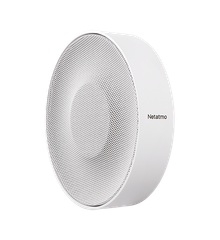国を選択
EU
NA
セキュリティ
敷地を見守る
ご自宅へのアクセスの安全を守り、柔軟性を向上
自宅を危険から守る
快適性
エネルギー使用を最適化する
屋内の空気質を改善する
照明と設備をコントロール
ブログ
テック&キャリア
専門の設置店
Legrandプロフェッショナル ネットワークLearn more
お客様の地域のLegrandプロフェッショナル ネットワークにご連絡ください
- アドバイスを受けられます
- サポートを受けたり、追加情報を入手したりできます
- 4年保証をご利用いただけます
販売店を探すLearn more
弊社のセールスおよびチャネル マーケティング チームは、店舗またはオンラインで商品を見つけていただくことができるように、全力を尽くしています。また、ビジネス ソリューション チームは、新製品開発のためのベストな業界パートナーシップの構築に尽力しています。
共同開発
協業アプローチLearn more
ネタトモは、「ウィズ ネタトモ(with Netatmo)」プログラムを通じて、業界パートナーと協力のもと、新しいスマート ホーム ソリューションを共同で開発しています。 製品仕様の定義、製造、製品の販売開始やメンテナンスなど、プロジェクト全体を通して関係各社がその専門性と知識を共有しています。
共同開発製品
ネタトモのパートナーLearn more
何年にもわたり、国際的な大企業や有名ブランドがネタトモと協力し、さまざまなスマート ホーム ソリューションを革新してきました。ネタトモは、プロジェクトの各段階において、パートナーの社内プロセスおよび知的財産を尊重します。 まもなく発表される新しいパートナーシップにご期待ください。
ネタトモAPIを利用
新しい可能性を発見Learn more
ネタトモ製品は、さまざまなアプリやサービスと連携し、生活をスマートにする家を作り出すというビジョンを実現します。 ネタトモAPIを使うと、サードパーティのアプリやサービスはネタトモ製品と連携できるようになります。ネタトモは、開発者コミュニティがスムーズに開発を進められるように取り組んでいます。このウェブサイトでは、すばやくプログラミングを始め、探している情報を常に見つけていただくことができます。
- スマートホームからのすべてのデータ
- Oauth 2.0認証基準を使用したデータ シェアリング
- ユーザー ボリュームに合わせたリクエスト数の上限
ネタトモのパートナー
ネタトモAPIの詳細を確認し、ネタトモ製品と自社エコシステムの連携を検討する
ウェザー ウィズ ネタトモ プログラムの測定値を活用する
ウェザー ウィズ ネタトモ プログラムの測定値を活用するLearn more
ウェザー ウィズ ネタトモ プログラムは、気象学者や気象組織に世界でも最大レベルのウェザーステーションネットワークを提供。ネタトモ コミュニティの広範な地域のデータを活用してもらうことができます。
- 地域を絞り込んだローカル データで天気予報を改善
- 研究プロジェクト&リサーチプロジェクトをさらに強化
- ビジネスや業界の課題に対するインサイトを取得
ネタトモを信頼する組織
ウェザーマップLearn more
世界最大規模のウェザーステーション コミュニティにご参加ください! ウェザーマップでは、170か国以上の国の地元の天気予報をリアルタイムで追跡可能。正確な気温、湿度、雨量、風速データを確認できます。

Matter
ネタトモと MatterLearn more
ネタトモ(Legrandグループ)は、CSA( Connectivity Standard Alliane)に加盟する220社の一社としてCSAに参画しています。 CSA加盟企業の協力により、コネクテッド機器間の通信基準が策定されました。この通信基準により、消費者は新しいコネクテッド製品と利用中のその他のコネクテッド製品に互換性があると確認できます。
エコシステム
Matter対応エコシステムで利用できるMatter対応製品をご覧ください。
























































